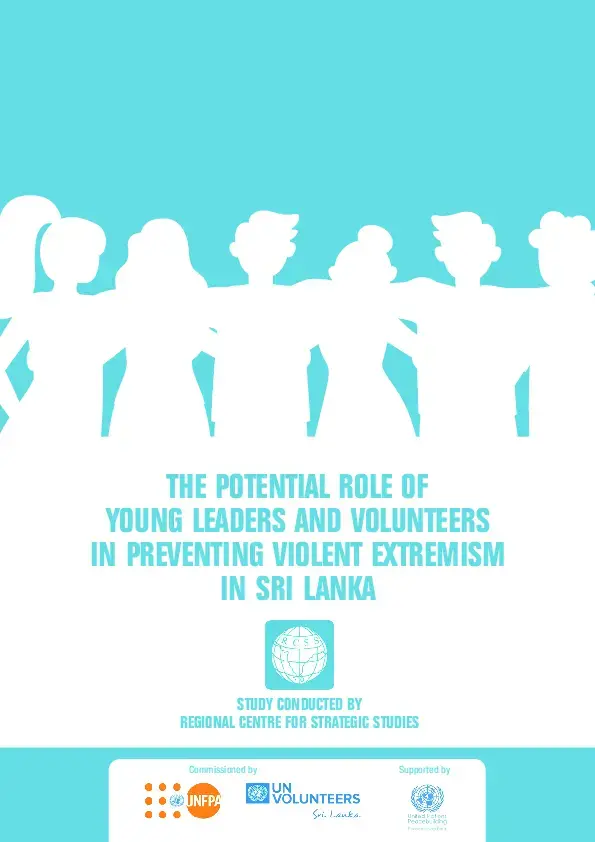The surge of sudden and brutal attacks on unarmed civilians in many parts of the world has highlighted violent extremism as a grave global concern. In post-war Sri Lanka, violent extremism has manifested in many forms over the past decades, the recent being the Easter Sunday attacks. It is crucial that Sri Lanka ensures its advocacy and policies assist young people to steer their aspirations into peaceful avenues, to prevent violent extremism.
Understanding the role of youth in preventing violent extremism, the United Nations Population Fund (UNFPA) and UN Volunteers (UNV) commissioned a study on ‘The Potential Role of Young Leaders and Volunteers in Preventing Violent Extremism in Sri Lanka’ in September 2018. The study was conducted by the Regional Centre for Strategic Studies (RCSS), with a sample size of 2,800 young people between the ages 15-29 years from the Northern, Eastern, Southern, and Central Provinces. While the field study was carried out pre-Easter Sunday attacks, from November – December 2018, the findings revealed that 25% of Sri Lankan youth from the four provinces believed that their peers are attracted to ideologies of violent extremism.


